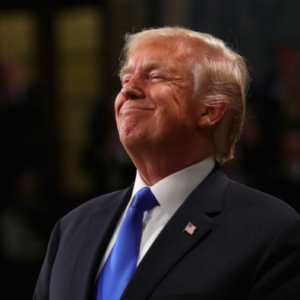In the recent flurry of psychological labels for Donald Trump, it is critical not to omit the obvious. The president is an addict.
He is addicted to attention and approval. Addicted to martyrdom. Addicted to self-aggrandizement and hypersensitive to any remark that might penetrate his fragile identity.
There is much truth in labeling the president a narcissist, but the omission of his co-existing addiction gives an incomplete picture. The addicted go to extensive and often risky lengths to reach their reward. They take chances, often against the advice of others.
Their focus on the large prize of a major hit, in particular, outweigh the potential dangers. It makes them blind to what others see as obvious.
We see the latter in the president’s recent interviews with Bob Woodward, the author of the book “Rage.” “You’re probably going to screw me,” the president told the writer. “You know, because that’s the way it goes.”
In other words, I understand there are risks, but the potential that I may be praised from someone with your prestige and clout is worth it.
Trump saw Woodward as a Washington power holder. A man with a reputation as a Washington insider, a man with clout. Contradictory to his self-proclaimed label as an extraordinary negotiator, Trump’s addiction makes him vulnerable to manipulation.
President Kim Jong-un of North Korea is perhaps the most dramatic case. Woodward describes an almost fawning relationship where Trump proudly showed Woodward the “loving” letters between the two leaders. Letters, that Trump apparently perceived as proof of an adoring relationship.
The understood closeness with Kim seemingly fostered a belief that Trump could persuade North Korea’s president to give up his nuclear weapons, a belief built on the foundation of an addictive mindset.
Addiction means a bevy of behaviors that ultimately link back to an obsessive need, in Trump’s case, a need for attention and praise. Lies, self-aggrandizement and blame can be a part of the assembly. For all addicts, their addiction dominates their thoughts, motivations and behaviors.
In Trump it means filtering complex information into a funnel that leads to his basic addictive need for attention and approval. It means dumbing down complicated decisions to judging whether the information is for or against him. Whether a person is friend or foe. Whether the material before him denies or supports his self-perception of being a superior person.
For nearly four years the Washington Post has fact-checked, labeled and tallied Trump’s lies, now tabulated to exceed 20,000. However, these are not lies to Trump. To the president, these are rather the expression of his reality, a reality carefully constructed to nourish his emotional needs and repel threats to his personal identity.
We see these needs reflected in his self-descriptions as “a very stable genius,” his “amazing” intelligence, “doing more for Blacks than another other president, except Lincoln.”
We see this in his pathological need to claim success when none exists. A reflexive denial of any criticism, no matter how small. An urgency to blame others for personal failings and to surround himself with sycophants who feed his hungry ego.
Addictions have their own internal fuel, just as the reward such as attention, are the external food. Internally, martyrdom plays that role for the president. Martyrdom makes it difficult to accept blame or take responsibility. Martyrdom builds a wall.
Given this psychological state, it is difficult to find any Trump statements outside of self-aggrandizement, blame and hostility to others. Finding authentic empathy and caring is near impossible.
Highly addicted individuals’ behaviors and beliefs crowd out healthy introspection and growth. Social skills and understanding of nuance and empathy are underdeveloped. For the addict, the world narrows to their needs.
It is no coincidence that Trump rose to the presidency via the path of a television celebrity.
Adoration is not a simple enjoyment for this president, it is a pathological need. An exuberant Trump following triumphant rallies is one piece of evidence. His downtrodden posture and dejection following his ill-attended rally in Tulsa, Oklahoma, is another. The intensity of these responses are not indicative of typical wants, but malignant needs.
Donald Trump is not going to go away. His obsession with massive adoration is much too strong. It is doubtful that such a pattern, as long it gives the intermittent cocaine-like hits, will end.
If the president loses the November election, he will morph to another forum, but will not disappear. His sense of victimhood and the rewards he receives from using that persona are too deeply embedded.

